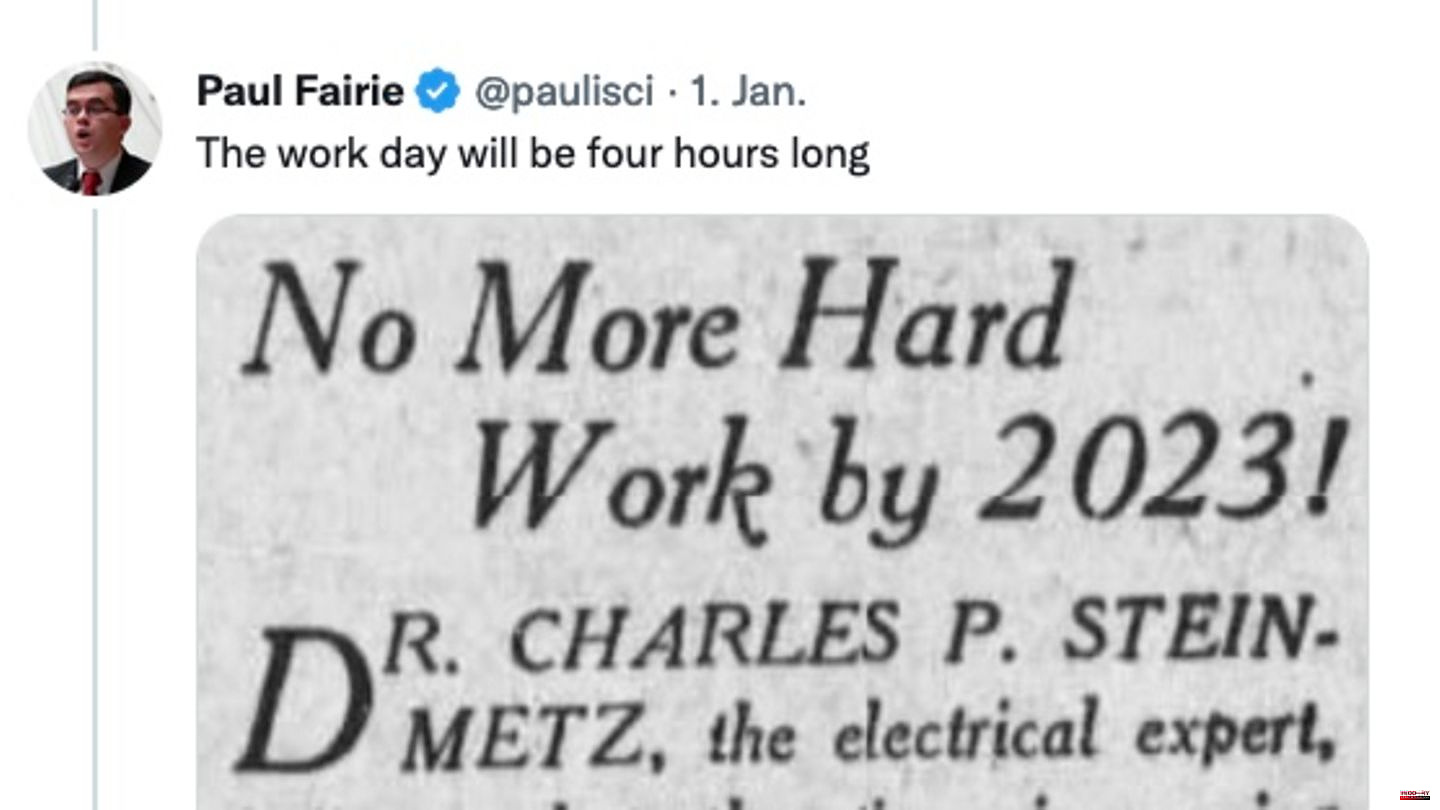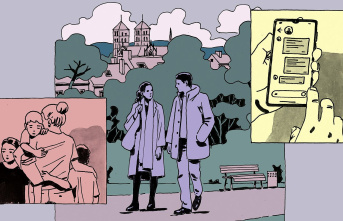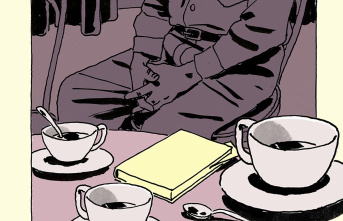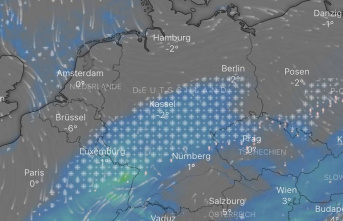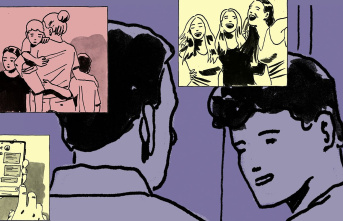What will 2023 look like? I'm sure many people asked themselves that at the turn of the year. But even a hundred years ago, scientists and sociologists were already thinking about how people will probably live in 2023. Paul Fairie, senior research associate at the University of Calgary in Canada, has searched hundred-year-old newspapers and magazines for their forecasts and discovered some rather curious but also surprisingly realistic forecasts.
Fairie published his finds on Twitter. These include different predictions of life expectancy, population growth forecasts, trends in personal hygiene, but also advances in travel or healthcare, as well as thoughts on the future of communication. Here you are:
"I thought it might be fun to look at what people thought about 2023, but 100 years ago," Fairie told National Public Radio of his research. "Browsing through archives is a fun hobby - it's incredibly relaxing to read about what people were thinking decades ago."
Many of the predictions are about things that worried people then and are still a source of concern for some today, the researcher explained. For example, the prediction that men will curl up seems to stem from a "general concern about anything challenging gender norms," while predicting a four-hour workday appears to be part of a larger discussion about the benefits of automation .
Given the mix of very daring predictions of the future, like communication through telepathy, and very real ones, like the watch-sized cellular phone, his most important lesson, Fairie says, "is that one should be humble about the certainty of predictions going a hundred years concerns". "If there's one thing I've learned from this compilation, it's that I have absolutely no idea what it will be like a century from now."
Source: Paul Fairie on Twitter, National Public Radio

